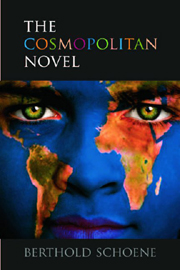Coda: The Cosmopolitan Imagination
Published online by Cambridge University Press: 12 September 2012
Summary
‘To globalize or not – that is no longer the question’ (Krishnaswamy and Hawley 2008: 15). Rather, we must ask how globalisation, whose processes involve and impact on all of us, can be turned to our advantage so that it comes to benefit humankind in its entirety. As suggested in this study, the first step might well be to imagine ourselves as belonging to something far less securely defined and neatly limitable than the nation, that is, to conceive of ourselves first and foremost as members of humanity in all its vulnerable, precariously exposed planetarity. This is where the role of literature, and the novel in particular, comes to the fore, breaking up the old identitarian myths of self-containment in order to make us take another look at ourselves and acknowledge our actual position within the world, which is simultaneously aspirational and free, finite and framed.
Put differently, globalisation reopens the question of community, how we connect one to the other, starting with the most intimate levels of everyday existence (our lives as family members, lovers and friends) via our communal neighbourhoods right up to the abstract heights of the nation and the globe as a whole. What do we expect or hope to contribute to world society, always making the most of our immediate boundedness in the local? Let us remember in this context that ‘the question of the concrete character of the impending world society or global family of peoples’ (Dallmayr 1997: 176) must remain seriously fraught due to its inbuilt utopian fallacy.
- Type
- Chapter
- Information
- The Cosmopolitan Novel , pp. 180 - 186Publisher: Edinburgh University PressPrint publication year: 2009



